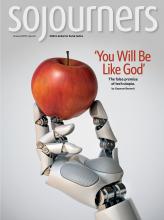IN MY FIRST week of design school, I found myself riding Austin’s notoriously limited public transit system, asking fellow riders why they used it, what would encourage them to ride more often, and what they would change about the service.
After a handful of interviews, my rides yielded an unexpected insight: Users didn’t like Capital Metro’s expanded hours and new bus routes. The changes, implemented in June, were ostensibly for the riders’ benefit. But people’s routine included a strong aversion to change. And for a population already dealing with a rapid rate of change in their city, the new routes were especially disorienting.
Any externally forced change can represent an existential threat—as we know all too well from our daily news cycles. Even something as small as the sudden restructuring of our—or our kids’—commute can throw our perceptions of relational, financial, or political safety into jeopardy.
We’re in a wearying time. And looking at CapMetro users’ responses, I began to wonder whether we can build levity into a daily commute as a form of comfort blanket for these users. How can we offer delight as an antidote to people who are really, really weary of change?
Read the Full Article

